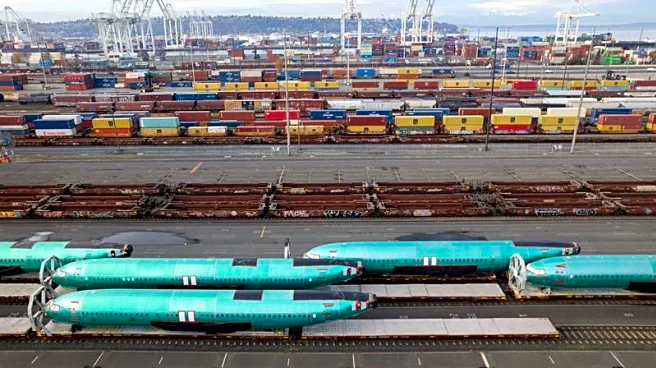What's Happening?
The recent cyber attack on Jaguar Land Rover (JLR) has underscored the vulnerabilities in digital supply chains. The attack, which occurred in early September, forced the closure of JLR's three UK plants for nearly a month. This incident highlights the increasing threat to interconnected digital systems, where attackers exploit weak links in supply chains. The breach serves as a reminder that security must be a strategic priority for businesses, as attackers use sophisticated methods, including AI-enabled exploits, to infiltrate systems. The attack on JLR demonstrates the potential for widespread disruption when a single link in the supply chain is compromised.
Why It's Important?
The JLR cyber attack is significant as it illustrates the growing risks associated with digital supply chains. As businesses become more interconnected, the potential for cyber attacks increases, posing a threat to operational continuity and data security. The incident emphasizes the need for robust cybersecurity measures across all levels of an organization. Companies must prioritize security as a core strategic element, integrating it into every aspect of their operations to mitigate risks. The attack also highlights the evolving nature of cyber threats, driven by advancements in technology, which require continuous adaptation of security strategies.
What's Next?
In response to the JLR breach, businesses are likely to reassess their cybersecurity strategies, focusing on strengthening supply chain resilience. This may involve implementing more rigorous vendor risk management, conducting regular penetration testing, and ensuring continuous development of security systems. Organizations will need to embed cybersecurity as a board-level priority, ensuring it is integrated into all partnerships and system changes. As AI continues to enhance the capabilities of cyber attackers, companies must remain vigilant and proactive in their security efforts to protect against future threats.











